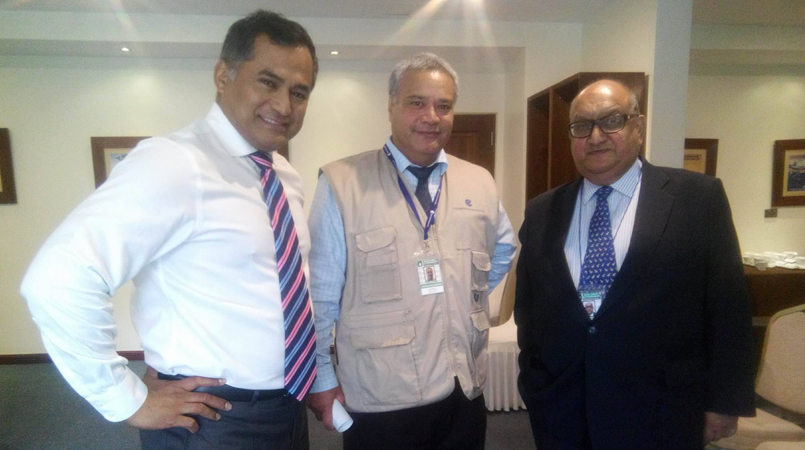
The Commonwealth Observer Group (COG) says it is disappointed that recommendations previously made to improve the electoral roll have not been implemented.
Chair of the COG, Sir Anand Satyanand, said a key issue and challenge which they noted was the significant number of eligible voters whose names were not on the electoral roll.
“The Group was very disappointed to reports that highlighted the need to address the issue, have yet to be implemented,” he said.
He added that it is critical that adequate expertise and funding required by the PNGEC for creating a credible roll should be provided in a timely manner before the next election.
“The people of Papua New Guinea deserve better and eligible voters must be allowed to exercise their democratic right and participate in their national elections,” Sir Anand added.
He said Electoral Commission needs to conduct an urgent review and lessons learned process immediately after this election and improve the accuracy of the common roll.
“It is our current assessment that all aspects of the electoral process will need a thorough review by the PNGEC immediately after this election. A post-election lessons learned workshop should be convened immediately after this 2017 election. The PNGEC should convene a series of workshops with all returning officers and election managers throughout the country.”
A detailed report will be submitted to the Commonwealth Secretary-General which will then be released to the PNG Government, the PNG EC, the Registrar of Political Parties, as well as the commonwealth Government’s and the public.
Key findings from the COG report include:
- Tremendous challenges with logistics and significant finance required to prepare the country’s elections;
- Lack of timely opening of polling;
- Polling officials moderately familiar with their responsibilities and adequate training is required;
- Any allowances for polling officials to be paid in advance;
- approve actions of presiding officers to only allow registered scrutineers into polling booths;
- a number of reported allegations of vote buying including the use of state state, provincial, and district development funds made available for incumbents;
- a robust media in the country;
- adherence to the secrecy of the ballot was clearly not consistent; and
- security presence at polling stations appeared to be adequate contributing to relatively peaceful and orderly polling.
